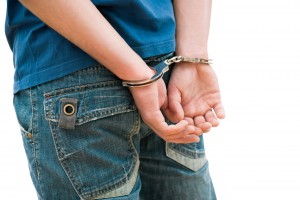
If your child ends up in handcuffs, you’re probably feeling a range of emotions. You may be angry, nervous, scared or a mix of all above, but you need to take a moment to collect yourself and understand that you need to do right by your child in this moment, and that means helping to protect their rights. But how can you help protect a child’s rights in the event of an arrest? We explain you how can help protect your son or daughter’s rights if they end up in handcuffs in today’s blog.
How Minors Can Protect Their Rights
It’s worth noting that in Minnesota, police are legally allowed to question a minor about an incident without a parent present. Police will need to read the Miranda Rights to the minor if they have been arrested prior to questioning, but they do not need a parent’s permission in order to start questioning your child. This is one of the reasons that we do not recommend letting your child “learn a lesson” in police custody. They can seriously hurt their case if they do not have an ally in their corner.
Minors do not need to answer questions during an integration, but kids will likely want to explain their side of the story, and police are experts are coercing confessions or statements that can serve to hurt your child’s case. It’s in your child’s best interest not to answer any questions while in custody. Even if police say that doing so will help their case or get them out of jail sooner, it’s important they remember that police are not their friend in this situation.
A child can put a stop to any interrogation while in police custody by requesting to have an adult of their choosing present during questioning. In other words, if you tell police that you’re not talking until you’ve spoken to a lawyer or your parents are present, police need to cut off the interrogation. If they continue to ask questions after a child has requested counsel or a parent, then anything that is admitted could be inadmissible in court, as this would be a violation of the child’s rights.
When you boil it all down, there are three things your child should do in order to protect their rights and their interests after an arrest. Those three things are:
- Remain silent
- Request a phone call to family or a lawyer
- Contact a lawyer
In most instances, children will call a parent or guardian with their one phone call. During this call, remind them to remain quiet and let them know that you’ll handle the rest. From there, you can either go down to the station and work to secure their release, or you can ensure that it is handled quickly and professionally by contacting a criminal defense lawyer. We know what needs to be done in order to get someone released from jail, so we can expedite the process and get your child released to you. Again, we know that you might be mad or angry, but now is not the time to teach them a lesson in jail. Help secure their release, then talk about their actions and consequences. If you allow police to legally interrogate them, it will be much harder for your child when the case goes to court.
If you need help securing your child’s release, or you want to learn more about fighting the criminal charges in court, reach out to Avery and the team at Appelman Law Firm today at (952) 224-2277.





